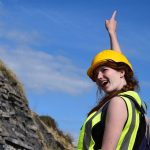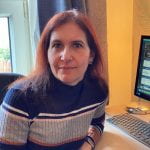
Our Athena Swan bronze application was submitted to Advance HE last week, so the committee attention naturally turned to tackling the detailed Action Plan which is core to the application. The various subgroups (culture survey, mentoring, and data) will be now meeting independently to discuss how to map progress against, and achieve the Action Plan.
Iain informed the committee that he attended a workshop organised by the Racial and Ethnic Equality and Diversity (REED) Ecological Network of the British Ecological Society on decolonising the curriculum at their annual meeting in December 2021. Progress on this will follow also from the recent consultation the University is running on this, and more generally on our teaching and learning strategy.
Jenny and Iain also met the EDI representative of the Department of Geography, Dr Dilkushi de Alwis Pitts. Following the merger of the Schools of Life Sciences and Geography, a new School of Life and Environmental Sciences has been created. To streamline work between our newly formed Departments of Life Sciences and Geography, Dilkushi will shortly be joining our committee, and a call will be open for other members of the Dept of Geography to join us.
We plan to reflect this on our blog soon, as well as invite any colleague or student from Geography
to write for our Spotlight series.
 ual meeting of the British Ecological Society, were they attended a workshop on that topic. This is a journey in progress at the moment, and we are awaiting further guidance from the University around appointing a champion, a working group and having a specific remit. We moved onto workloads, noting that we are awaiting an update, following a dispute raised by the union to which the University has yet to respond.
ual meeting of the British Ecological Society, were they attended a workshop on that topic. This is a journey in progress at the moment, and we are awaiting further guidance from the University around appointing a champion, a working group and having a specific remit. We moved onto workloads, noting that we are awaiting an update, following a dispute raised by the union to which the University has yet to respond.


